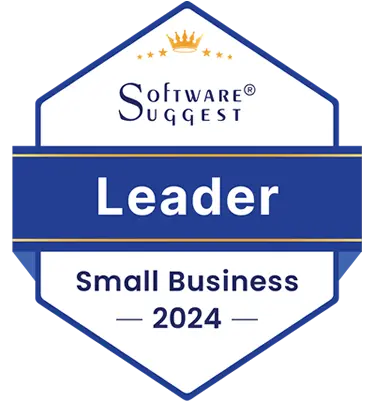In the ever-expanding landscape of e-commerce, Software as a Service (SaaS) platforms have emerged as indispensable tools for businesses seeking to establish and scale their online retail operations. These cloud-based solutions offer a host of features and functionalities designed to streamline the e-commerce experience, from storefront creation to order management and beyond. In this comprehensive guide, we'll explore the top SaaS e-commerce platforms that are revolutionizing the way businesses sell online.Beginning at $18 consistently,
In the ever-evolving landscape of digital commerce, establishing a profitable online store has become a sought-after endeavor for entrepreneurs and businesses alike. The global shift towards online shopping has opened up vast opportunities, but success in the e-commerce realm requires careful planning, strategic execution, and a commitment to delivering value to customers. In this comprehensive guide, we'll delve into the key steps and strategies to help you create a profitable online store.
1. Define Your Niche:
Before diving into the world of e-commerce, it's crucial to define your niche. Identify your target audience and understand their needs and preferences. Choose a niche that aligns with your passion and expertise, as this will not only make the process more enjoyable but also set you apart in a competitive market.
2. Conduct Market Research:
Thorough market research is the foundation of a successful online store. Analyze your competitors, identify market trends, and assess consumer behavior. Tools like Google Trends, SEMrush, and industry reports can provide valuable insights, helping you tailor your offerings to meet customer demands.
3. Select the Right E-Commerce Platform:
Choosing the right e-commerce platform is a pivotal decision. Options like Shopify, WooCommerce, and BigCommerce offer user-friendly interfaces, customizable designs, and integrated payment solutions. Consider your budget, technical expertise, and scalability needs when making this decision.
4. Design a User-Friendly Website:
Your website is the storefront of your online business. Invest in a clean, intuitive design that reflects your brand identity. Ensure seamless navigation, quick loading times, and mobile responsiveness. A positive user experience will encourage visitors to explore your products and make purchases.
5. Optimize Product Pages:
Craft compelling product descriptions, accompanied by high-quality images. Provide essential details, such as product specifications, pricing, and availability. Implement a user-friendly checkout process with multiple payment options to cater to diverse customer preferences.
6. Implement SEO Strategies:
Search Engine Optimization (SEO) is essential for driving organic traffic to your online store. Conduct keyword research and optimize product descriptions, meta titles, and URLs. Regularly update your blog with relevant content to enhance your site's visibility in search engine results.
7. Create a Content Marketing Plan:
Content marketing is a powerful tool for building brand awareness and engaging your target audience. Develop a content calendar that includes blog posts, social media updates, and newsletters. Share valuable content that resonates with your audience and establishes your brand as an authority in your niche.
8. Utilize Social Media Marketing:
Social media platforms provide a dynamic space to connect with potential customers. Develop a strong social media presence on platforms like Instagram, Facebook, and Twitter. Share visually appealing content, run targeted ads, and engage with your audience to foster a sense of community around your brand.
9. Offer Incentives and Discounts:
Entice customers with special offers, discounts, and loyalty programs. Limited-time promotions and exclusive deals can drive sales and encourage repeat business. Consider implementing a referral program to leverage the power of word-of-mouth marketing.
10. Prioritize Customer Service:
Exceptional customer service is a cornerstone of a successful online store. Promptly respond to customer inquiries, address concerns, and provide a seamless return process. Positive customer experiences contribute to brand loyalty and positive reviews, further enhancing your online reputation.
11. Monitor Analytics and Iterate:
Regularly analyze website analytics and sales data to gain insights into customer behavior. Identify high-performing products, assess marketing strategies, and make data-driven decisions to optimize your online store continuously.
12. Invest in Digital Marketing:
Strategically invest in digital marketing channels such as Google Ads, Facebook Ads, and influencer collaborations. Target your advertisements to reach your specific audience, and monitor the performance of each campaign to refine your approach over time.
13. Build Trust with Secure Transactions:
Security is paramount in e-commerce. Invest in SSL certificates to secure online transactions and reassure customers that their sensitive information is protected. Display trust badges prominently to build confidence in your store.
14. Stay Updated with Industry Trends:
The e-commerce landscape is dynamic, with trends and technologies constantly evolving. Stay informed about industry developments, emerging technologies, and changing consumer preferences. Adapt your strategies to stay ahead of the competition and meet the evolving needs of your audience.
15. Scale Your Business:
As your online store gains momentum, explore opportunities for expansion. Consider introducing new products, entering new markets, or diversifying your offerings. Continuously innovate to keep your brand relevant and competitive in the ever-growing e-commerce space.
In conclusion, creating a profitable online store requires a combination of strategic planning, a deep understanding of your target audience, and a commitment to delivering exceptional value. By following these steps and staying adaptable to industry changes, you can build a thriving e-commerce business that stands the test of time. Remember, success in the digital marketplace is an ongoing journey, and continuous improvement is the key to sustained profitability.
In the dynamic world of online retail, non-customized e-commerce software has emerged as a convenient and accessible solution for businesses looking to establish an online presence without the intricacies of extensive customization. These out-of-the-box platforms offer a quick and straightforward entry into the digital marketplace, catering to a diverse range of entrepreneurs, startups, and small businesses.
Non-customized e-commerce software is pre-packaged with essential features, providing users with a ready-made platform to showcase and sell their products or services online. The simplicity of these solutions is particularly appealing for those who may not possess advanced technical skills, offering an uncomplicated setup process that allows users to get their stores up and running swiftly.
One notable advantage of non-customized e-commerce software lies in its cost-effectiveness. With a predefined set of features, users can avoid the expenses associated with custom development while still accessing critical functionalities like secure payment gateways, inventory management, and order processing. This affordability makes non-customized platforms an attractive option for budget-conscious businesses aiming to establish a robust online presence.
In today's fast-paced digital landscape, establishing a strong online presence is paramount for any business aiming to thrive in the competitive market. An online business portal serves as the virtual gateway to your brand, offering a seamless and engaging experience for both customers and partners. In this article, we'll explore the key elements and strategies involved in setting up a successful online business portal. In the digital age, launching an e-commerce business is a gateway to unlimited opportunities, allowing entrepreneurs to reach a global audience and maximize their market potential. Building a successful online shop requires a strategic and well-thought-out approach. Here's a comprehensive guide to help you navigate the intricacies of establishing and growing your e-commerce venture.
1. User-Friendly Interface: The first impression is crucial, and your online business portal should captivate visitors from the moment they land on your page. Invest in a clean, intuitive, and user-friendly interface that ensures effortless navigation. Implement a responsive design to cater to users across various devices, providing a consistent and enjoyable experience.
2. Compelling Content: Content is king, and your online portal should be a treasure trove of valuable information. From engaging product descriptions to insightful blog posts, high-quality content establishes your authority in the industry. Use a mix of visuals, videos, and written content to convey your brand story, product features, and benefits. Regularly update your content to keep it relevant and enticing.
3. Seamless E-commerce Integration: If your online portal involves selling products or services, seamless e-commerce integration is non-negotiable. Ensure a secure and efficient payment gateway, user-friendly shopping cart, and a straightforward checkout process. Prioritize user convenience and provide multiple payment options to enhance the overall shopping experience.
4. Robust Security Measures: Building trust is paramount in the digital realm. Implement robust security measures to safeguard user data and transactions. SSL certificates, secure payment gateways, and compliance with data protection regulations are essential components. Clearly communicate your commitment to data security, reassuring users that their information is in safe hands.
5. Personalized User Experience: Customization is key in creating a memorable online experience. Implement personalization features based on user preferences, purchase history, and behavior. Tailored recommendations, personalized dashboards, and targeted marketing campaigns enhance user engagement and foster a sense of connection with your brand.
6. Mobile Optimization: With the increasing reliance on smartphones, mobile optimization is no longer optional. Ensure that your online business portal is fully optimized for mobile devices, offering a seamless and responsive experience. Mobile users should have access to all features and functionalities without compromising on speed or design.
7. Social Media Integration: Harness the power of social media by seamlessly integrating your online business portal with popular platforms. Social media buttons, sharing options, and real-time updates can enhance user interaction and expand your brand's reach. Leverage social media marketing strategies to drive traffic to your portal and foster a vibrant online community.
8. Analytics and Insights: In the digital landscape, data is a goldmine. Implement robust analytics tools to gather insights into user behavior, preferences, and trends. Utilize this information to refine your strategies, optimize user experience, and make data-driven decisions to stay ahead of the competition.
9. Customer Support and Feedback Mechanism: Prompt and efficient customer support is a cornerstone of a successful online business portal. Implement live chat, email support, and comprehensive FAQs to address user queries. Additionally, provide avenues for user feedback, encouraging customers to share their experiences and suggestions for improvement.
10. Continuous Improvement: The digital landscape is ever-evolving, and your online business portal should evolve with it. Regularly assess and update your portal to incorporate the latest technologies, design trends, and user expectations. Stay abreast of industry developments to position your brand as a forward-thinking and innovative player.
However, it's essential to note that the simplicity of non-customized e-commerce software comes with limitations. Users may encounter challenges if they seek highly specialized or unique features that go beyond the standardized offerings. Additionally, the design flexibility might be constrained, limiting the ability to create a truly distinctive brand presence. Below are the few top saas ecommerce platforms
Are you ready to take your online business to unprecedented heights? Meet Myonlinestore – the ultimate e-commerce solution designed to empower entrepreneurs, small businesses, and enterprises with a seamless and feature-rich online selling experience. Buckle up as we unveil a game-changing tool that will revolutionize the way you do e-commerce.
Key Features:
Intuitive Drag-and-Drop Builder
All-Inclusive Hosting
Multi-Channel Selling
Smart Analytics and Insights
Mobile Optimization
Secure Transactions
Comprehensive SEO Tools
Effortless Inventory Management
Pros
Versatility for All Businesses
Time and Cost Efficiency
24/7 Customer Support
Regular Updates and New Features
Cons
Learning Curve for Advanced Features
Subscription Costs
Key Features:
Pros:
Cons:
Key Features:
Pros:
Cons:
Pros:
Cons:

Conclusion: Choosing the Right SaaS software for Your Business
Selecting the right is a critical decision that can impact the success of your online retail venture. Whether you're a budding entrepreneur, a growing business, or an established enterprise, each of these platforms offers unique features and benefits to suit your specific needs. From the user-friendly interface of Shopify to the customization capabilities of WooCommerce and the all-in-one solution of BigCommerce, there's a platform to match every business model and budget.
Consider factors such as pricing, scalability, customization options, and support when making your decision. Take advantage of free trials and demos to test the platforms firsthand and determine which one aligns best with your goals and objectives. With the right by your side, you can unlock the full potential of your online business and embark on a journey of growth and success in the digital marketplace.
Key Features:
Pros:
Cons:




Our clients' success stories speak volumes. Their testimonials highlight our dedication to delivering quality, reliability, and affordability. With a proven track record of satisfied customers across multiple industries, you can trust that our software services are not only best-in-class but also designed to fit your budget without compromising on quality. Let us help you achieve your business goals affordably and efficiently!